Market Signals Summary:
The MAC-US model is in cash and will signal a buy within next week. The iM-Low Frequency Timer is in the markets. The “3-mo Hi-Lo Index of the S&P500” generated a buy signal on 2/22/2019 and invests in the markets. The monthly updated S&P500 Coppock switched out of the market on 1/29/2019. The MAC-AU has signaled a buy on 2/7/2019 and is invested in the markets. The recession indicators COMP and iM-BCIg do not signal a recession. The bond market model avoids high beta (long) bonds, and the yield curve is indeterminate and signaled buy FLAT end November 2018. The gold Coppock model is invested in gold, however the silver model is in cash since early August 2018. The iM-Gold Timer sold gold on 12/31/2018The monthly iM-GT-Timer, which is based on Google trends, has switched to cash on November 1, 2018.
Stock-markets:
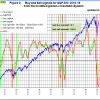 The MAC-US model is in cash after it generated a sell signal on November 26, 2018. The buy-spread (green graph) is above last week’s level needs to rise above zero to signal a buy.
The MAC-US model is in cash after it generated a sell signal on November 26, 2018. The buy-spread (green graph) is above last week’s level needs to rise above zero to signal a buy.
Forward simulation shows that if markets remains at present levels then this indicator will signal a buy early this week.
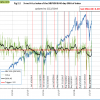 The 3-mo Hi-Lo Index of the S&P500 is above last week’s level at 6.44% (last week 2.47%), generating the buy signal on 2/22/2017 and is invested in the markets.
The 3-mo Hi-Lo Index of the S&P500 is above last week’s level at 6.44% (last week 2.47%), generating the buy signal on 2/22/2017 and is invested in the markets.
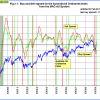 The MAC-AU model is invested in the markets after signaling a a buy on February 7, 2019. The sell-spread (red line) now needs to move above zero before a sell signal can be generated.
The MAC-AU model is invested in the markets after signaling a a buy on February 7, 2019. The sell-spread (red line) now needs to move above zero before a sell signal can be generated.
This model and its application is described in MAC-Australia: A Moving Average Crossover System for Superannuation Asset Allocations.
Recession:
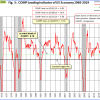 Figure 3 shows the COMP down from last week’s levels . No recession is indicated. COMP can be used for stock market exit timing as discussed in this article The Use of Recession Indicators in Stock Market Timing.
Figure 3 shows the COMP down from last week’s levels . No recession is indicated. COMP can be used for stock market exit timing as discussed in this article The Use of Recession Indicators in Stock Market Timing.
The COMP followed the Aruoba-Diebold-Scotti Business Conditions Index’s downward revision.
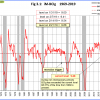 Figure 3.1 shows the recession indicator iM-BCIg above last week’s level. An imminent recession is not signaled .
Figure 3.1 shows the recession indicator iM-BCIg above last week’s level. An imminent recession is not signaled .
Please also refer to the BCI page
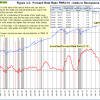 The Forward Rate Ratio between the 2-year and 10-year U.S. Treasury yields (FRR2-10) is near last week’s level and is not signaling a recession. The FRR2-10 general trend is downwards.
The Forward Rate Ratio between the 2-year and 10-year U.S. Treasury yields (FRR2-10) is near last week’s level and is not signaling a recession. The FRR2-10 general trend is downwards.
A description of this indicator can be found here.
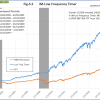 The iM-Low Frequency Timer is back in the markets since 1/22/2019.
The iM-Low Frequency Timer is back in the markets since 1/22/2019.
A description of this indicator can be found here.

Leave a Reply
You must be logged in to post a comment.